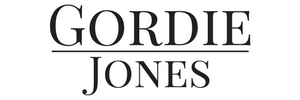A decade ago, a governmental agency deemed a young man’s life to be worth exactly $77,500.
His name was Declan Sullivan, and he had literally been lost in the machinery of big-time college football one October day in 2010. Sullivan, then a 20-year-old student videographer at Notre Dame, was told to shoot a Fighting Irish practice from a hydraulic platform. Winds gusting over 50 mph toppled the platform, resulting in his death.
The Indiana Occupational Safety and Health Administration (IOSHA) launched an investigation, and in March 2011 announced fines totalling the above sum, for six safety violations on UND’s part, one of which was knowingly putting employees in an unsafe situation.
This comes to mind now, because Brian Kelly, who was then in his first season as the Irish’s head coach, just took the job at LSU after 12 years in South Bend. (And while we’re on the subject of worth, he will receive at least $95 million over the course of his 10-year contract.)
Kelly caught flak for leaving his old school high and dry late in a season that finds the fifth-ranked Irish taking an 11-1 record into the Fiesta Bowl on Jan. 1 against No. 9 Oklahoma State, and for skipping out on his players after the briefest of farewells. According to an audio recording obtained by BlueAndGold, Rivals.com’s UND site, he addressed the team for less than four minutes.
Still, it’s difficult not to associate Kelly with Sullivan, and vice versa. And it’s impossible not to wonder what was going through Kelly’s mind that fateful day. Did he feel so much as a twinge of guilt over a student dying on his watch? Was he not devastated to learn that one of Sullivan’s final tweets read as follows: “Gusts of wind up to 60mph well today will be fun at work … I guess I’ve lived long enough”? Or that his final tweet, from the tower, was this: “holy (bleep) holy (bleep) this is terrifying”?
Chris Korman, writing last week for USA Today, offered this assessment of Kelly’s state of mind:
The usual thing to do is ask “How does he look at himself in the mirror?” but I don’t think that’s a valid question. I think he looks in the mirror and sees whatever he wants to see, because college football has long been a system where head coaches are given too much money and power. They end up believing the world is whatever they want it to be because most of the time it is. They never have to assess how they move through it; it moves for them.
Goodness knows the world continued to move for Kelly after the accident. He won a lot, reached 10 bowl games, even played for a national championship after the 2012 season. (Nick Saban was on the other sideline; it didn’t go well for UND.)
And Declan Sullivan was pretty much left behind. According to a 2011 wire-service report, Kelly told the IOSHA investigators that it was his decision to practice outside that day “on information from my support staff.” He also told reporters a few days after the incident that when the tower fell, he instructed two of his assistants to continue running practice while he ventured to the accident site. Seeing that medical personnel were on the scene, he said, he returned to his players. He informed them of the seriousness of the situation, and a prayer was said. Then they were dismissed for the day.
Kelly also said the following: “As a father of three I can only imagine the sorrow that accompanies the loss of your son.” And this: “In terms of the tragedy that occurred, there’s never been a more difficult time in my life.”
Note that there didn’t appear to be any admission that he or anyone else at Notre Dame might have been at fault. (Nor did the investigation reach that conclusion. Chris Wynkoop, who had been Sullivan’s friend and roommate, told the New York Times in 2012 that in his opinion the IOSHA report “was a little reluctant to assign blame to any particular entity.”)
The university’s president, Fr. John Jenkins, appears to have been the only one to express regret, in a statement a few days after the accident.
“Declan Sullivan was entrusted to our care, and we failed to keep him safe,” Jenkins wrote. “We at Notre Dame – and ultimately I, as President – are responsible. Words cannot express our sorrow to the Sullivan family and to all involved.”
Again, we can only speculate as to what was in the head or heart of a guy like Kelly. Jenkins defended him at the time, but it is at least worth noting (as Korman did) that the very same season Sullivan died, Lizzy Seeberg, a student at St. Mary’s College, a women’s school adjacent to Notre Dame, committed suicide after accusing a UND player of sexual assault. The player, who reportedly wasn’t even interviewed about the incident until 15 days after it allegedly occurred (and five days after his accuser’s death), was ultimately found to be “not responsible.”
Barry Sullivan, Declan’s dad, told the New York Times in 2012 that he didn’t believe “anybody knowingly acted recklessly and caused the accident” that resulted in his son’s death. Since then he has funneled funds from Declan’s memorial fund to Horizons for Youth, a Chicago-based organization that counsels and tutors disadvantaged children in the Windy City.
In other words, he has made certain that his son’s life is worth far more than $77,500.
We can only wonder if Brian Kelly believes that as well.
Though we can certainly hazard a guess.
